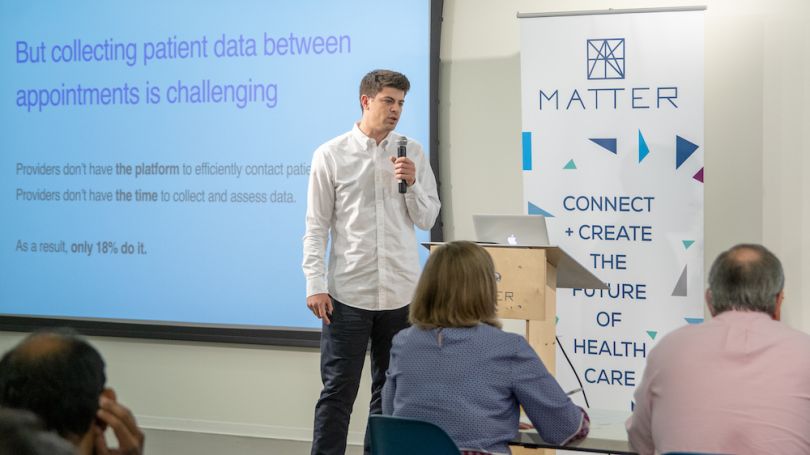
Navigating the American healthcare industry can feel like an impossible task, between the red tape and the lack of collaboration between payers and providers.
But it can be done. MATTER, a Chicago-based healthtech incubator, believes it has found a blueprint for success — and it has the stats to prove it. Founded in 2014, MATTER operates as a compass for healthtech startups, providing guidance to help them navigate the industry and find success.
In the five years since its founding, MATTER has worked with more than 200 health technology startups, and those startups have collectively raised more than $1 billion in funding.
According to co-founder and CEO Steven Collens, the incubator’s Chicago location has been indispensable in fostering a thriving tech ecosystem.
“We have a huge amount of healthcare expertise in Chicago,” Collens told Built In. “We’ve been able to pull a community together that makes it easier for those entrepreneurs to develop their business. The fact that those companies have raised a billion dollars is evidence of that.”

It’s all about collaboration
MATTER’s blueprint begins with the belief that collaboration is key. The demands and requirements of the health industry are so specific and high —we’re talking about people’s lives, after all — that the steps to success are rarely straightforward, Collens said.
To solve for that dilemma, the MATTER team set out to create a space where founders and their teams could mingle and learn from successful executives and doctors. That would be impossible without proximity to some of the nation’s best hospitals, practitioners and major professional organizations like the American Medical Association, Collens said.
We’ve been able to pull a community together that makes it easier for those entrepreneurs to develop their business.”
MATTER connects founders to mentors, works with them on creating business plans, helps them hone their investment pitches and introduces them to investors. The organization also creates forums for companies to meet with representatives from large corporations, or each other, to help flesh out their ideas.
“We believed that you can generate better ideas and build better businesses if entrepreneurs are working with, and exposed to, the established industry,” Collens said. “The more we can have a cross-pollination of ideas, the better it is for development.”

What do incubators look for?
MATTER works with health industry startups from across the country at all stages and sizes. They must, however, present a real healthcare solution and give the incubator some reason to believe they’ll be successful, Collens said. That could mean the company’s technology is already touching the lives of patients, that it incorporates novel uses of data or that it has an experienced founder.
Upon being accepted to the incubator, companies go through a formal onboarding program, designed to give the MATTER team a better understanding of their challenges, resources and opportunities. Over the years, MATTER has also developed a curriculum for its companies that includes more than 100 classes on everything from mentorship to funding basics and creating a business model.
MATTER’s current roster includes companies like Pear Therapeutics, which is developing digital tools to treat schizophrenia, HealthVerity, which provides a cloud-based platform to discover compliant, de-identified healthcare data, and Redox, which simplifies data sharing from one provider to the next. Combined, those companies raised $122 million this year, according to MATTER.

Building the future of healthcare
As MATTER looks to the future of healthcare, Collens said he’s most excited about the potential to make the system more intelligent and proactive.
Technology enables us to move toward a system that treats people anytime, anywhere.”
To that end, he said, artificial intelligence and data analytics hold a lot of promise — especially as more medical records are being stored in the cloud. Looking at patterns in large populations over time will generate opportunities to intervene before health issues develop to the point of acute crisis, not after.
“People engage with the healthcare system after they have a symptom or a concern, and the healthcare system responds and reacts to that,” Collens said. “Technology enables us to move toward a system that treats people anytime, anywhere.”
Ultimately, MATTER hopes to continue to build off its success and strengthen the pipeline for the future of healthcare. And with $1 billion in funding raised, the incubator is off to a great start.




